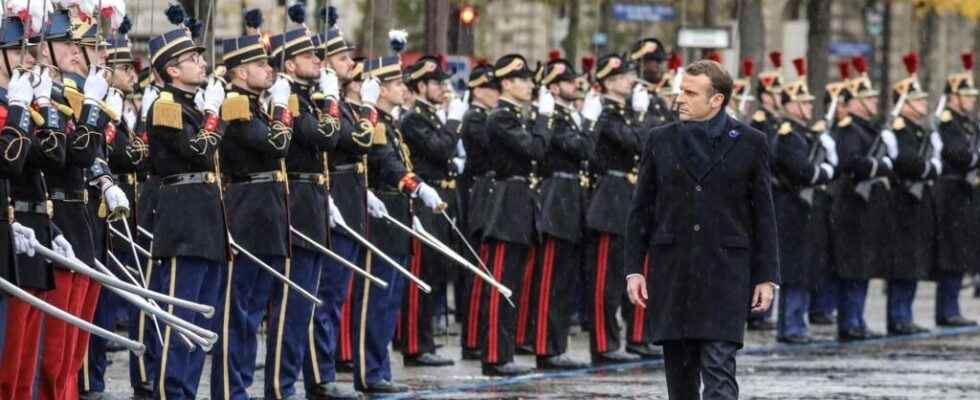Thirteen ultra-right activists are on trial from this Tuesday, January 17 by the Paris Criminal Court for having prepared a series of violent actions, including a plan to attack the Head of State, at the end of 2018, during commemorations of the centenary of the armistice of the First World War, in the east of France. These people are being prosecuted for association with terrorist criminals.
Kill migrants, attack mosques or attack Emmanuel Macron with a ceramic knife. This is what the defendants talked about on the phone, by email or during meetings during which they practiced shooting. Eleven men and two women, aged 26 to 66, members of the ultra-right Barjols group.
Were these real intentions? Or just talk in the air to make themselves interesting? Of remarks made under the influence of anger while bubbling the movement of yellow vests? Four years of investigation have failed to bring out any real projects. The prosecution speaks of an imminent act, but when the four main defendants were arrested on November 6, 2018, in Moselle, while Emmanuel Macron was in full “ memorial roaming in eastern France, only a dagger, a military vest, survival equipment and a Bible were found in the car of one of them. No ceramic knife. Firearms and ammunition are well seized, but at his home, in Isère.
It is therefore ultimately before a criminal court, and not an Assize Court, that the defendants must explain themselves. Me Olivia Ronen, who defends Jean-Pierre Boyer, presented as the instigator of the plan to attack the president, sees this as a sign that the case has been turned upside down. For her, the terrorist qualification is abusive and the material evidence non-existent.
[…] We have people who like to speak loudly, who like to speak loudly, who like to say a lot of things, but saying things aggressively and violently is not an offense or else these are defined by the Penal Code. It is extremely important that our courts be able to distinguish between things, particularly in an offense such as criminal association with terrorism, between ideas and the moment when these ideas, since they are implemented by preparatory acts, can be repressed. There is a real border between the two and I expect the criminal court to be able to really materialize it.
They risk ten years in prison.
